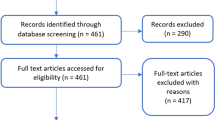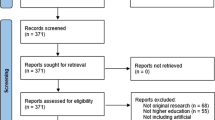Abstract
This paper describes an investigation of secondary school pupils using data analysis software in their science lessons. The aim of the project was to determine the nature and complexity of data analysis tasks that could be mastered by pupils aged between 13 and 14 years, through the use of data analysis software. The research project involved the study of three matched experimental and control pairs of classes of pupils analysing scientifically- based data. The findings show that pupils using computer-based software can perform a range of complex tasks, including the use of Boolean logical operators, 'and', 'greater than' and 'less than', which are more intellectually advanced than reported by other researchers. These results show that given appropriate information technology (IT)-based data analysis tools, pupils as young as 13--14 can perform such complex data analysis tasks as classifying data according to one or more criteria and then ranking data according to a different criterion. This contradicts some of the earlier research that concluded that such tasks could not be easily achieved by pupils of this age
Similar content being viewed by others
REFERENCES
Beek, J. Been, P. and Hurts, K. (1989) Computer-based learning for on-line database search. Computers & Education 13(4) 327–36.
Bezanilla, M. J. and Ogborn, J. (1992) Logical sentences and searches. Journal for Computer Assisted Learning 8(1) 37–48.
Cox, M. J. (1992) Using microcomputers to enhance the understanding of science concepts. In Sciences de L'Experimentation aux Concepts. J. Aghion, J. Depireux, and R. Holvoet. (eds) pp. 138–58. Brussels. Commissariat G aux Relations Internationales de la Communaute´ Franc¸ aise de Belgique.
Fitzpatrick, C. (1990) Computers in geography instruction. Journal of Geography 89(4) 148–9.
Freeman, D. and Levett, J. (1986) QUEST-Two curriculum projects: perspectives, practice and evidence. Computer Education 10(1) 55–9.
HMSO, (1985) Assessment of performance. Science in Schools. Ages 13–15. Report No. 3, London: HMSO.
Johnson, D. C. (1993) Secondary pupils' achievements using IT. In D. Watson (ed.) The ImpacT report: an evaluation of the impact of information technology on children's achievements in primary and secondary schools. London: King's College, Centre for Educational Studies.
Mayer, R. (1992) Thinking, Problem Solving, and Cognition. New York: Freeman.
Spavold, J. (1989) Children and databases: an analysis of data entry and query formulation. Journal for Computer Assisted Learning 5(3) 145–60.
Underwood, J. D. M. and Underwood, G. (1990) Computers and learning: helping children acquire thinking skills, Oxford: Blackwells.
Watson, D. (ed.) (1993) The ImpacT report: an evaluation of the impact of information technology on children's achievements in primary and secondary schools. London: King's College, Centre for Educational Studies.
White, C. (1987) Developing information processing skills through structured activities with a computerised file-management program. Journal of Educational Computing Research 3(1) 355–75.
Author information
Authors and Affiliations
Rights and permissions
About this article
Cite this article
Cox, M., Nikolopoulou, K. What information handling skills are promoted by the use of data analysis software?. Education and Information Technologies 2, 105–120 (1997). https://doi.org/10.1023/A:1018644709701
Issue Date:
DOI: https://doi.org/10.1023/A:1018644709701




